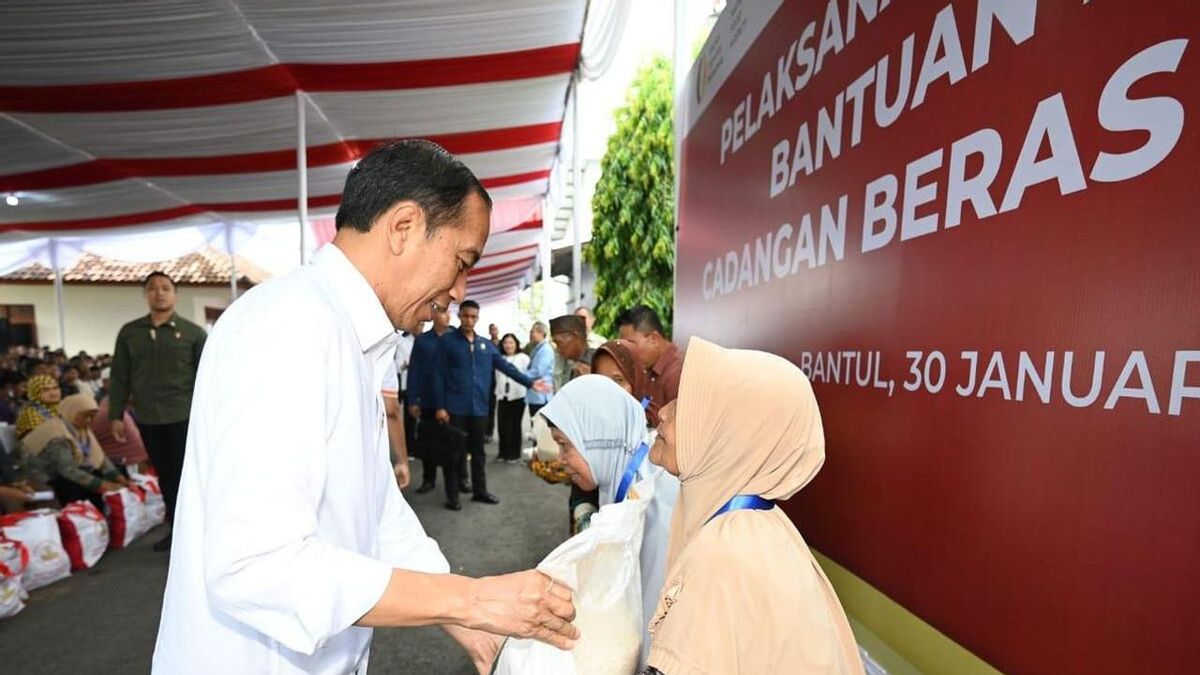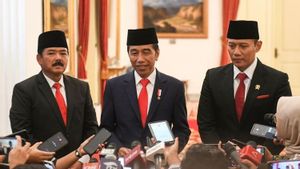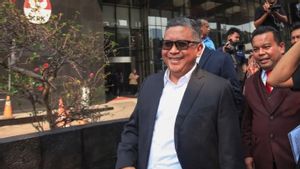JAKARTA The price of rice that continues to skyrocket forces people to rack their brains to meet the needs of life. Indonesia, known as an agricultural country, has difficulty controlling rice prices, which is a staple food for almost all of its people. Why is that?
The increase in rice prices has occurred since the end of last year. In October 2023, data from the Ministry of Trade stated that the national average price of premium quality rice reached IDR 15,052 per kilogram (kg). This price rose 2.3 percent compared to the previous month, and increased 17.6 percent compared to last year. This is also the most expensive record in the last five years.
Instead of returning to normal, people are even more screaming because the price of rice is getting more expensive in early 2024. Not only expensive, premium rice also suddenly becomes a rare item.
This is ironic, considering that Indonesia as an agricultural country should be able to provide rice for its citizens on paper. But what happens on the ground is the opposite, already expensive, rare.
The increase in rice prices, coupled with the difficulty of the community finding its availability, news emerged that this phenomenon was interrelated with the moments ahead of the 2024 General Election and Presidential Election.
Member of Commission IX of the House of Representatives (DPR) Ri from the PKS faction, Netty Prasetiyani Aher, said that the price of rice is expensive and scarce in the market in recent months due to the wrong social assistance (bansos) policy.
He did not agree with the claim that the scarcity and high price of rice in the market occurred due to changes in the weather which made the harvests fall. Netty is worried that this condition can reduce people's purchasing power for basic commodities even though they are soon entering Ramadan and Eid al-Fitr where basic needs are increasing.
"The reason for El Nino and crop failure is not a single factor that makes rice scarce and expensive. The reckless social assistance policy without thinking about supply availability is also a factor that causes rare rice," said Netty, quoted from the DPR website.
"This social assistance jor-joran is not as urgent as during the COVID-19 era. Surprisingly, the social assistance ahead of yesterday's election was more frequent and more frequent than during the pandemic. The government must have the courage to recognize and evaluate the policy," he added.
But a different opinion was expressed by Agricultural Observer of the Indonesian Political Economy Association (AEPI) Khudori. He said that there was no connection between social assistance and the increase and scarcity of rice in Indonesia. Khudori explained that the provision of social assistance rice from the government to the public could not be ascertained to be one of the causes of the current increase in rice prices.
"It is not certain. If the recipients of various social assistance and social safety nets simultaneously buy large amounts of rice, of course there will be an impact. But who can confirm that," said Khudori.
He further explained that the phenomenon of scarcity of rice and high prices was due to limited domestic rice production. He predicts this condition will last until next April.
Khudori assessed that the increase in rice prices was very crucial because apart from being staple food, the Indonesian people who were dominated by Muslims would also face Ramadan and Eid al-Fitr. During that period, the demand for rice generally increased.
"This is crucial because in March there was Ramadan and April there was Eid al-Fitr. It is important for the government to ensure adequate supply of rice. If not, potential prices continue to rise and can cause a commotion, even shake up social-political conditions," said Khudori in a statement received by VOI, Friday (23/2/2024).
SEE ALSO:
In the same statement, Khudori is worried that the government's failure to secure rice prices has the potential to add new poor. Khudori said that the poor do not need to worry about the increase in rice prices because they are included in the group that receives various aids.
Groups of recipients of assistance, such as the Family Hope Program (PKH), basic food programs in the form of 10 kg/family/month rice food assistance. There is even a three-month Food Risk Mitigation BLT with each family receiving Rp600 thousand.
What needs attention is in groups that are only a few edges above the poverty line. If the price of rice and food goes up, they have the potential to become new poor. They have not been touched by these various social assistance and social safety nets," said Khudori again.
The scarcity of rice due to crop failure has actually been predicted since mid-year ago, when the Meteorology, Climatori and Geophysics Agency (BMKG) warned about the long dry season caused by El Nino. However, the government is considered to be late in managing this food crisis.
According to a number of experts, this condition should have been avoided because it involved stomach matters of around 270 million people in Indonesia. However, the government is considered negligent in anticipating this problem because it was lulled by massive imports last year.
Meanwhile, Head of the Department of Economics and Business Vocational School Vocational University of Gadjah Mada, Anggito Abimanyu said Indonesia had actually experienced a rice deficit in the past few years, even before the El Nino storm.
He said there was a structural problem in food policy that caused Indonesia as an agrarian country to experience a shortage of rice. The structural problems that Anggito meant were production costs, high fertilizer prices, limited land, and many more.
"Now this problem is coupled with a backward harvest," he said.
Anggito added that the problem of rising rice prices has not only been experienced by Indonesia but also globally. This is due to the world's lack of supply. India is known to have imposed restrictions on rice exports since 2023. In fact, they are one of the largest rice exporting countries.
"Actually, not only in Indonesia, rice prices have also increased worldwide due to supply shortages. World rice is experiencing scarcity," said Anggito.
Many exporting countries are holding back their production, the ban on rice exports is being carried out because they are worried that climate change will really affect production. What has been exporting rice has actually been holding back their rice. This is a global and structural problem," said Anggito again.
The English, Chinese, Japanese, Arabic, and French versions are automatically generated by the AI. So there may still be inaccuracies in translating, please always see Indonesian as our main language. (system supported by DigitalSiber.id)














